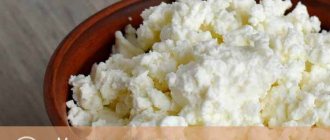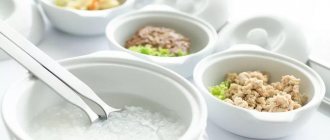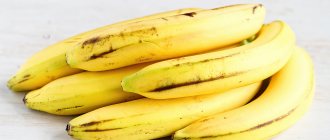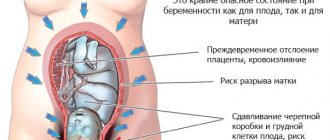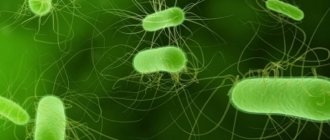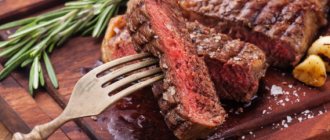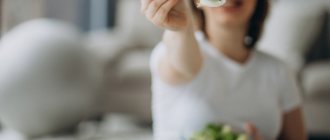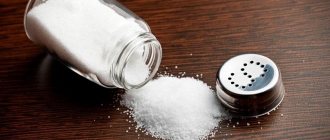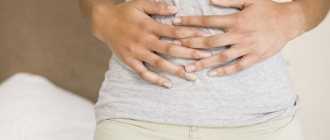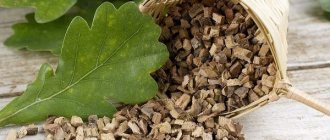Diet for diarrhea: how to help the intestines return to normal
Diet for diarrhea: how to help the intestines return to normal
Diarrhea (diarrhea) can accompany various conditions and diseases, but in most cases it goes away without treatment. A special diet will help solve this problem.
therapeutic diets, diarrhea
The causes of diarrhea can be a variety of conditions, and, as a rule, it is these that need to be treated. If stool disorder is accompanied by other symptoms: vomiting, fever, you should consult a doctor. In the absence of additional symptoms, adjusting your diet and eating habits may be sufficient to solve the problem. Doctors advise taking medications for diarrhea on your own only in emergency cases, when you cannot do without them.
Red, black, or discolored stools, as well as vomiting, bloating, pain, and fever can be signs of serious, life-threatening illnesses. In these cases, you should immediately call an ambulance.
At what age can a child have kefir?
Kefir is added to complementary foods when the baby turns 8 months***.
As with other new foods, offer your child a little at first - 1 teaspoon. If allergies do not appear: rash, itching, diarrhea, shortness of breath - by 9 months, increase the amount of kefir to 200 ml per day. Give kefir for an afternoon snack alternately with other ICM* (biolact, or baby yogurt). They replace each other: the main thing here is that the baby has a tasty meal.
Offer kefir at night to children who want a snack before bed*. How much kefir is enough for children under one year and older - see in the tables:
Table 1. Total volume of fermented milk products per day * in the first year.
| 8 months | 9-12 months |
| 0→200 ml | 200 ml |
From the age of 1, the amount of cottage cheese in a child’s diet increases and cheese is added, so the amount of kefir is as follows:
| 12-18 months | 18-36 months |
| 150-180 ml | 150-180 ml |
A child prone to constipation can be given up to 200 ml of CMP per day from 12 months.
The importance of diet for diarrhea
Diarrhea is frequent bowel movements that are accompanied by loose stools. The danger of this disorder increases with its duration - prolonged or chronic diarrhea can cause vitamin deficiency, lack of micro- and macroelements, and anemia. Short-term diarrhea is dangerous due to dehydration and electrolyte imbalance.
The main causes of stool upset in healthy people are changes in water and food (so-called traveler's diarrhea), food poisoning, acute infectious diseases, and taking certain medications. Diarrhea can be a consequence of inflammatory processes, intestinal diseases, liver diseases, nervous disorders, metabolic disorders, hepatitis, etc.
What is table number 4?
The main task of a diet for diarrhea is to provide the body with nutrients while simultaneously reducing the load on the gastrointestinal tract. The digestion process in this disorder is disrupted, the speed of food passage is increased, so you should exclude from the diet everything that can irritate or increase the functioning of the gastrointestinal tract. It is important to prevent the development of inflammation, fermentation and putrefactive processes and help the intestines restore normal functioning. The official name of the diet for diarrhea is table No. 4.
Principles of diet for diarrhea
- reduced amount of fats and carbohydrates with a normal amount of proteins;
- exclusion of foods that stimulate the secretion of the digestive organs;
- exclusion of foods that cause fermentation and rotting in the intestines;
- semi-liquid or pureed warm food;
- plenty of fluid (up to 2 liters per day);
- fractional meals;
- calorie intake reduced to 1800–1900 kcal per day.
The University of Bristol has developed the so-called Bristol Stool Scale (a table for determining its condition). According to this table, there are 7 types of stool, the last 2 are considered diarrhea.
When is kefir forbidden for a child?
When there is a severe allergy to cow's milk protein. It is determined by observations and confirmed by tests if suspicions arise. Your child is likely allergic to dairy products if you notice the following symptoms after drinking kefir****:
- Regurgitation, vomiting, constipation, colic, blood in the stool, or shortness of breath. If you experience shortness of breath, call a doctor immediately.
- The baby scratches the skin around his mouth after drinking kefir.
- Dairy products in complementary foods consistently cause diarrhea, and weight gain has clearly decreased.
Gentle mode
With diarrhea, it is necessary to provide the patient’s body with energy, but this must be done carefully. Preference should be given to easily digestible foods: boiled, steamed and then pureed. Steamed cutlets, quenelles, soufflés made from tender lean meat or fish are the best source of protein. Slimy cereal soups with low-fat light broth are recommended. Porridges made from rice, oatmeal, or buckwheat must be wiped before use.
Allowed are soft-boiled eggs or in the form of a steamed omelet, fresh unleavened cottage cheese, pureed baked apples, jelly made from fruits and berries that have a fixing effect (pear, blueberry, dogwood, quince). The only fat allowed is butter – it can be added little by little to prepared dishes.
For diarrhea, it is useful to eat yesterday's wheat bread and wheat crackers - they have adsorbent properties. Other baked goods are excluded.
Features of nutrition in chronic enterocolitis
Chronic enterocolitis is an inflammation of the mucous membrane of the small and large intestines, a violation of the processes of digestion and absorption of food. I am worried about abdominal pain, rumbling, and transfusion in the intestines. The abdomen is swollen, but gases are difficult to pass. The stool is unstable, with a predominance of diarrhea. Fatigue appears, performance decreases, and body weight loss is noted. If it is mainly the small intestine that suffers, then a dull aching pain in the abdomen is localized in the navel area; if the large intestine is involved in the pathological process, then the pain is more pronounced, often spastic, intensifying with the accumulation of gases in the intestines and before stool and weakening after the passage of gases and after stool. The intestines are often swollen, the stool is unstable - sometimes diarrhea, sometimes constipation, sometimes mushy. The general condition usually does not change with mild to moderate severity of the disease. In severe cases of the disease, patients lose weight unless they switch to medical nutrition.
The cause of the development of chronic intestinal disease is dysentery, helminthic infestation, viral diseases, chronic infections (tuberculosis, diseased teeth, purulent plugs in the tonsils), dietary errors (abuse of coarse, hard-to-digest foods, spicy, smoked foods, poor diet), illness digestive organs, allergies, genetic factors, abuse of certain medications and other factors.
The defining element of treatment for chronic enterocolitis is properly structured diet therapy.
Therapeutic nutrition helps restore altered intestinal functions, impaired metabolism, and normalize the condition of the body as a whole. Nutrition should be as complete, balanced, varied as possible and, of course, meet physiological needs.
The protein component of the diet is of great importance. Complete protein helps to quickly restore impaired functions of the intestines, liver, pancreas, as well as impaired metabolism. The amount of fat in the diet for enterocolitis should be sufficient - 100-120 g per day, but so that it does not cause weakness, it must be evenly distributed over all meals. It is not recommended to take fat in its free form - it is better to add it to prepared dishes, stirring evenly.
Butter on a sandwich can cause bitterness and other dyspeptic disorders, but added to porridge or soup is well tolerated. With an exacerbation of the disease, diarrhea, fats in the diet are reduced to 60-70 g for 4-5 days. In addition to fat, which is part of protein products, preference should be given to butter and sour cream.
In chronic enterocolitis, vitamins and mineral salts (calcium, phosphorus, potassium, iron, etc.) are usually poorly absorbed, which can lead to various disorders in the body (changes in the nervous and muscular systems, dental caries, changes in bones). Therefore, vitamins and minerals must be administered additionally. Calcium is well absorbed if the diet contains enough protein, fat and phosphorus. Unleavened cottage cheese and cheese are a sufficient source of calcium for chronic enterocolitis. They should be eaten daily, at least once a day.
To avoid the development of anemia, the diet should contain easily absorbed iron. Among animal products containing iron, meat, eggs, granular caviar, liver, hematogen are recommended (hematogen can be added to cereals, soups, porridges, baked gingerbread); from products of plant origin - grade II wheat flour, oatmeal, quince, apples, dogwood. Decoctions, jelly, compotes, preserves, and jams are prepared from fruits; Apples and pears can be baked in the oven or grated. During the period of remission, apples can be eaten raw.
Table salt is limited - it causes irritation of the intestinal mucosa and loosening of stools.
Eggs may also be poorly tolerated. Abdominal pain, bloating, the appearance of frequent loose stools - all this can be associated with the high content of sulfur-containing amino acids in egg yolk, which, due to disruption of digestion processes in the small intestine, contribute to the formation of hydrogen sulfide in the intestine. But if eating eggs in their natural form does not cause any discomfort, you can safely eat them. All dishes for enterocolitis can only be steamed, boiled and baked in the oven.
You should not eat while reading or watching TV. While eating, you need to concentrate on what you are eating, contemplating the food. Then the enzymatic systems begin to work optimally. And one more equally important point: you should absolutely not eat hot food with a temperature of more than 40 degrees. Food should be slightly warmer than room temperature. All this is connected with the life and renewal of cells of the digestive tract (they live for three days, then are restored). And if you eat hot food three times a day (above 40 degrees), then the dead cells do not have time to recover and erosions, gastritis, enterocolitis, colitis and ulcers appear.
Special mention must be made about drinking. Water is a necessary component in the algorithm of actions aimed at recovery. You should not drink water while eating. It is also not advisable to drink immediately after eating. It is recommended to drink water 1 hour before meals so that it has time to go into the intestines. It is also necessary to remember the temperature of the water used. In hot weather, the water temperature should be 22-23 degrees, and in cold weather about 35 degrees.
Patients with chronic enterocolitis in the stage of stable remission without exacerbation are prescribed a diet containing a normal amount of proteins (100-120 g), fats (100-120 g), carbohydrates (400-450 g), table salt (up to 15 g), free liquid ( 1.5 l). Energy value is 3000-3500 kcal per day. The diet is mechanically gentle with the preservation of chemical irritants. Food with varying degrees of grinding. The temperature of cold dishes is not lower than 15°C, hot food - not higher than 40°C. Meals are five times a day, mostly in puree form.
Recommended:
- day-old wheat bread, buns or pies made from soft dough with boiled meat, rice, eggs, apples, cheesecake with cottage cheese.
- soups in low-fat meat or fish broth with various cereals (except millet), vermicelli, potatoes, carrots, zucchini, pumpkin, cauliflower. - lean meats (beef, veal, rabbit), poultry (chicken, turkey) or fish (pike perch, cod, silver hake, perch, navaga) in pieces or chopped, boiled, stewed, baked or fried (without breading), lean ham, soaked herring.
-soft-boiled eggs, steamed, baked and fried omelettes.
— Butter (no more than 50 grams per day) is added to the finished dish and used for frying food.
- various vegetables (carrots, potatoes, zucchini, pumpkin), if well tolerated - white cabbage, green peas, young beans, beets, stewed, boiled and baked.
- crumbly porridges (except millet and pearl barley), cooked in water with the addition of 1/3 milk or cream, steamed or baked puddings, boiled vermicelli.
- baked apples and pears, sweet fruits and berries in the form of jelly, compote, jelly, jam, preserves. Strawberries, wild strawberries, raspberries, apples and pears without peel are allowed raw.
— freshly prepared apple, strawberry and cherry juices.
- whole milk in dishes, and if well tolerated in its pure form, fermented milk products, fresh cottage cheese in its natural form or in puddings, casseroles, cheesecakes, mild cheese, fresh sour cream up to 15 g in dishes.
- parsley, dill, cloves, vanilla, a small amount of bay leaf, milk sauce without frying flour with the addition of sour cream, butter, tomato juice, fruit sauces.
- tea, coffee with milk, rosehip and blackcurrant decoction
Limited to: egg yolk, liver, tongue, heart, lungs, brains, as well as extractive substances. Broths are prepared either weak or secondary. If the broth, even weak, increases pain in the upper abdomen or causes other unpleasant sensations, you need to cook all the first courses with vegetable or cereal broth.
Excluded: fatty meats (pork, lamb), poultry (duck, goose) and fish (sturgeon, stellate sturgeon, beluga), canned fish and meat, hard-boiled eggs, pork, lamb and beef fat, legumes, pearl barley, radishes , garlic, onions, peppers, cucumbers, mushrooms, fatty snacks, smoked meats, fatty and hot sauces, mustard, horseradish, grape juice.
Products rich in organic acids are contraindicated: sour varieties of berries and fruits (lemons, cranberries, gooseberries, black and red currants, red cherries, sour apples), as well as sour dairy products with high acidity.
Recommendations during an exacerbation ( except for the main diet menu )
Salt is limited to 5-8 grams (remember that 3-5 grams are contained in foods, 5-8 grams in bread). Free liquid no more than 1.5 liters. Additionally, vitamins A, C, and group B (B1, B2, PP) are needed. Eating food during bed rest every 2-3 hours in liquid and semi-liquid form. Even if the condition improves, six meals a day in liquid and puree form are recommended. Alcohol consumption is strictly prohibited.
For a patient suffering from several diseases, therapeutic nutrition is prescribed taking into account the requirements and restrictions of all diets. Therefore, you need to follow the recommendations of your doctor, taking into account concomitant diseases and individual characteristics.
The prognosis for recovery is favorable with timely and active treatment.
Lavrentyeva N.V., rehabilitation doctor
Prohibitions and restrictions
All foods that, due to their chemical or physical (mechanical, temperature) properties, can irritate the gastrointestinal tract should be excluded from the diet. That is why everything hot and cold, fatty, spicy, salty, sweet is prohibited.
The consumption of smoked meats, marinades and other canned food, confectionery, milk, coffee with milk, cocoa, and carbonated drinks is strictly prohibited. For a while you will have to give up fatty meats and fish, as well as caviar and sausage. There is a separate taboo on alcohol - alcoholic drinks increase dehydration of the body.
It is not allowed to eat fresh fruits - their dietary fiber is too coarse for an irritated gastrointestinal tract. For the same reason, vegetables are prohibited - only a little light vegetable decoction can be added to dishes. Legumes are also not recommended, as they can cause gas.
